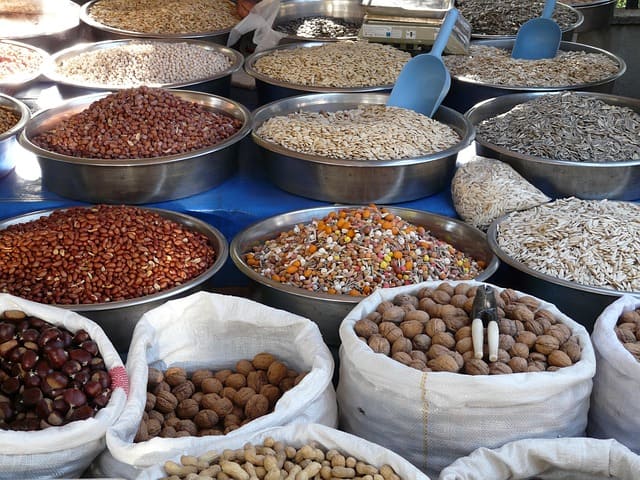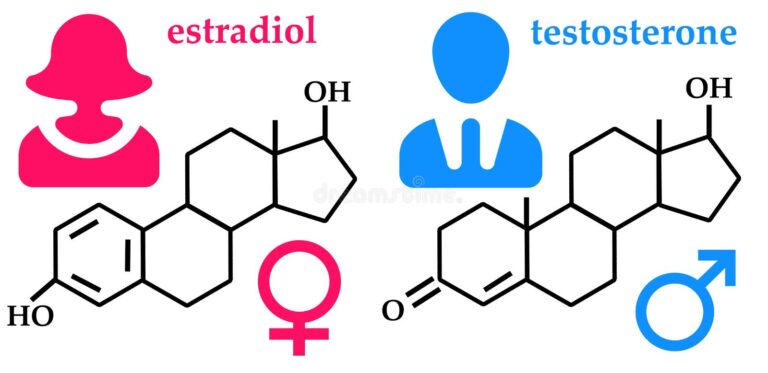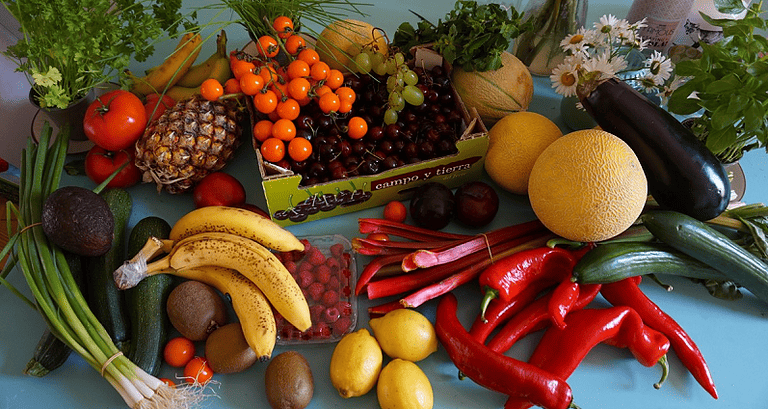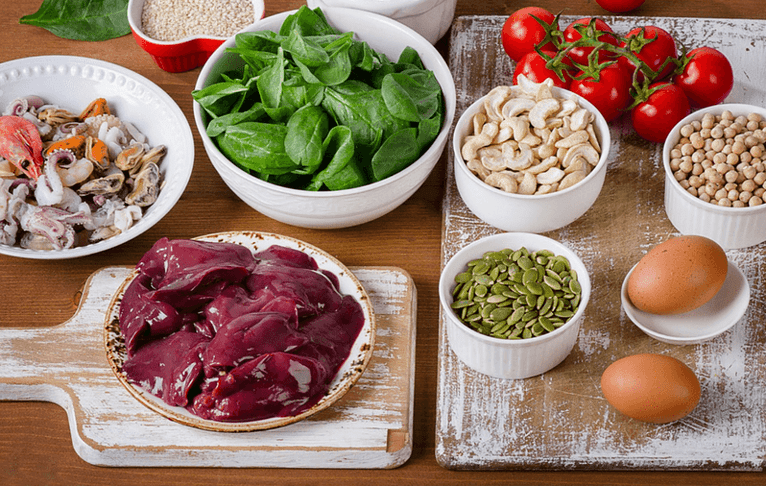Fiber: Signs You Are Eating Too Much
As someone who values a healthy diet, I have always been told that fiber is an essential part of it. However, too much of anything can be harmful, and the same goes for fiber. Consuming too much fiber can lead to various health problems, including digestive issues and nutrient deficiencies. In this article, I will discuss some signs that indicate you may be eating too much fiber.
One of the most common symptoms of too much fiber is bloating. If you feel like your stomach is always full, even after eating a small meal, it could be a sign that you are consuming too much fiber. Additionally, excessive gas and flatulence are also common symptoms of consuming too much fiber. If you find yourself constantly feeling gassy or bloated, it may be time to reevaluate your fiber intake.
Another sign that you may be consuming too much fiber is constipation. While fiber is known to help regulate bowel movements, too much of it can have the opposite effect. If you experience infrequent bowel movements or have difficulty passing stools, it could be a sign that you are consuming too much fiber. It is important to note that these symptoms may also be caused by other factors, so it is always best to consult with a healthcare professional if you are concerned about your fiber intake.

What is Fiber?
As someone who is interested in healthy eating habits, I’ve often heard about the importance of fiber in our diets. But what exactly is fiber?
Fiber is a type of carbohydrate that our bodies cannot digest. Instead, it passes through our digestive system largely intact. There are two types of fiber: soluble and insoluble. Soluble fiber dissolves in water and forms a gel-like substance in our intestines, while insoluble fiber does not dissolve in water and adds bulk to our stool.
Fiber is found in a variety of foods, including fruits, vegetables, whole grains, nuts, and seeds. Some common sources of soluble fiber include oats, apples, and beans, while sources of insoluble fiber include wheat bran, broccoli, and carrots.
One of the benefits of fiber is that it can help regulate our digestion. Soluble fiber can slow down the absorption of sugar and cholesterol in our bloodstream, while insoluble fiber can help prevent constipation by adding bulk to our stool. Additionally, fiber can help us feel full and satisfied after meals, which may help with weight management.
While fiber is an important part of a healthy diet, it’s also possible to consume too much of it. So, I’ll explore some of the signs that you may be eating too much fiber and what you can do about it.
Why is Fiber Important?
As someone who is interested in maintaining good health, I have found that fiber is an essential nutrient that should be included in my diet. Fiber is a type of carbohydrate that is found in plant-based foods such as fruits, vegetables, whole grains, and legumes. Unlike other carbohydrates, fiber cannot be broken down by the body, which means that it passes through the digestive system mostly intact.
Benefits of Fiber
There are several benefits of including fiber in your diet. Here are a few:
- Promotes healthy digestion: Fiber helps to promote regular bowel movements and prevent constipation. It also helps to keep the digestive system healthy by feeding the good bacteria in the gut.
- Lowers cholesterol levels: Soluble fiber, which is found in foods such as oats, beans, and fruits, can help to lower cholesterol levels by binding to cholesterol and removing it from the body.
- Regulates blood sugar levels: Fiber can help to regulate blood sugar levels by slowing down the absorption of glucose into the bloodstream. This can be especially beneficial for people with diabetes.
- Promotes weight loss: Foods that are high in fiber tend to be more filling, which can help to promote weight loss by reducing overall calorie intake.
It is important to note that while fiber is an essential nutrient, it is possible to consume too much of it. Consuming excessive amounts of fiber can lead to uncomfortable side effects such as bloating, gas, and constipation. It is recommended that adults consume between 25 and 30 grams of fiber per day.

What Happens When You Eat Too Much Fiber?
As someone who has experienced the unpleasant side effects of consuming too much fiber, I can attest to the fact that it is not a pleasant experience. In this section, I will discuss the signs and symptoms of eating too much fiber.
Signs and Symptoms of Eating Too Much Fiber
When you consume too much fiber, your body may not be able to digest it properly, leading to a variety of uncomfortable symptoms. Here are some of the most common signs and symptoms of eating too much fiber:
- Bloating: One of the most common symptoms of eating too much fiber is bloating. This happens when the fiber in your diet causes excess gas to build up in your digestive system.
- Gas: Along with bloating, you may also experience excess gas when you eat too much fiber. This can lead to uncomfortable and embarrassing flatulence.
- Abdominal pain: Eating too much fiber can also cause abdominal pain and discomfort. This may be due to the excess gas and bloating that fiber can cause.
- Constipation: While fiber is often recommended to help with constipation, consuming too much insoluble fiber can actually make it worse. This is because fiber absorbs water, which can make your stools hard and difficult to pass.
- Diarrhea: On the other hand, consuming too much soluble fiber can also lead to diarrhea. This is because fiber can speed up the passage of food through your digestive system, leading to loose stools.
- Dehydration: If you consume too much fiber without drinking enough water, you may become dehydrated. This is because fiber absorbs water, which can lead to a lack of hydration in your body.
Overall, if you are experiencing any of these symptoms, it may be a sign that you are consuming too much fiber. To avoid these unpleasant side effects, it is important to consume fiber in moderation and drink plenty of water to help your body digest it properly.
How Much Fiber is Too Much?
It’s important to know how much fiber is too much. While fiber is an essential part of a healthy diet, consuming too much of it can lead to some uncomfortable and potentially dangerous side effects.
The recommended daily fiber intake for adults is between 21-38 grams, depending on age and sex. However, it’s important to note that this is just a general guideline, and individual needs may vary based on factors such as activity level, weight, and overall health.
Consuming too much fiber can lead to a variety of uncomfortable symptoms such as bloating, gas, and abdominal pain. It can also lead to more serious issues such as constipation, diarrhea, and even intestinal blockages.
It’s important to gradually increase your fiber intake over time, rather than trying to consume a large amount all at once. This will allow your body to adjust and avoid any negative side effects.
In addition, it’s important to stay hydrated when consuming fiber, as it can absorb water and lead to dehydration if you’re not careful. Drinking plenty of water and other fluids throughout the day can help prevent this.
Overall, while fiber is an important part of a healthy diet, it’s important to consume it in moderation and pay attention to your body’s individual needs and reactions.
What to Do if You’ve Eaten Too Much Fiber
If you’ve eaten too much fiber and are experiencing uncomfortable symptoms, don’t worry. There are several things you can do to help alleviate the discomfort. Here are some tips:
1. Drink plenty of water: Drinking water can help soften your stool and make it easier to pass. It can also help prevent constipation, which can be a side effect of eating too much fiber. Aim to drink half of your body weight in ounces of water. For example, if you weigh 150 pounds, you should drink at least 75 ounces (2.2 liters) of water per day.
2. Avoid fiber-rich foods: While it’s important to include fiber in your diet, if you’ve eaten too much, it’s best to avoid fiber-rich foods for a little while. Stick to bland foods like white rice, chicken, eggs, and white toast until your symptoms subside.
3. Go for a walk: Exercise can help stimulate your digestive system and promote regular bowel movements. Take a short walk after a meal to help get things moving.
4. Take a break from supplements: If you take fiber supplements, stop taking them for a few days until your symptoms improve.
5. Try probiotics: Probiotics are beneficial bacteria that can help improve digestive health. They can be found in foods like yogurt, kefir, and sauerkraut, or in supplement form. Probiotics can help restore balance to your gut and alleviate symptoms like bloating and gas.

Remember, it’s important to gradually increase your fiber intake to avoid experiencing uncomfortable symptoms. If you continue to experience discomfort even after following these tips, it’s best to consult with your healthcare provider to rule out any underlying health issues.
Fiber-Rich Foods to Limit
As someone who has experienced the unpleasant side effects of eating too much fiber, I’ve learned that it’s important to be mindful of which fiber-rich foods I consume. While fiber is an essential nutrient for maintaining good health, it’s possible to overdo it and end up with uncomfortable symptoms like bloating, gas, and constipation.
Here are some fiber-rich foods that I’ve learned to limit in my diet to avoid going overboard:
Legumes
Legumes like beans, lentils, and chickpeas are a great source of fiber, but they can also be difficult to digest for some people. To avoid bloating and gas, I make sure to soak my legumes overnight before cooking them, which helps to break down some of the indigestible sugars that can cause digestive discomfort.
Whole Grains
Whole grains like brown rice, quinoa, and whole wheat bread are also high in fiber, but they can be hard on the digestive system if you’re not used to eating them. To avoid constipation and other digestive issues, I make sure to intake plenty of liquids when I eat whole grains, and I try to gradually increase my intake over time instead of making sudden changes to my diet.
Cruciferous Vegetables
Vegetables like broccoli, cauliflower, and Brussels sprouts are packed with fiber and other nutrients, but they can also cause bloating and gas for some people. To avoid these symptoms, I make sure to cook my cruciferous vegetables thoroughly, which can help to break down some of the complex fibers that can be hard to digest.
Nuts and Seeds
Nuts and seeds like almonds, chia seeds, and flaxseeds are a great source of fiber, but they can also be high in fat and calories. To avoid overdoing it, I make sure to measure out my portions and limit my intake to a handful per day.
By being mindful of the fiber-rich foods that I consume, I’ve been able to avoid many of the unpleasant side effects of eating too much fiber. While these foods are still an important part of a healthy diet, it’s important to consume them in moderation and to listen to your body’s signals to avoid overdoing it.

Conclusion
It is important to monitor your fiber intake to avoid experiencing unpleasant symptoms. While fiber is essential for a healthy diet, consuming too much can lead to bloating, gas, abdominal pain, constipation, and diarrhea.
To ensure you are getting the right amount of fiber, it is recommended to gradually increase your intake and consume a variety of fiber-rich foods such as fruits, vegetables, whole grains, and legumes. Keeping track of your daily fiber intake through a written or virtual food diary can also help you stay on track.
If you are experiencing negative side effects from consuming too much fiber, try drinking plenty of water and eating bland foods such as white rice, chicken, eggs, and white toast until you feel better. It is also important to consult with a healthcare professional if you are experiencing severe symptoms or have a pre-existing medical condition.
Remember, balance is key when it comes to fiber intake. Consuming the recommended daily amount of fiber can provide numerous health benefits, but consuming too much can lead to negative side effects. By monitoring your intake and making small changes to your diet, you can ensure you are getting the right amount of fiber for a healthy and happy gut.







